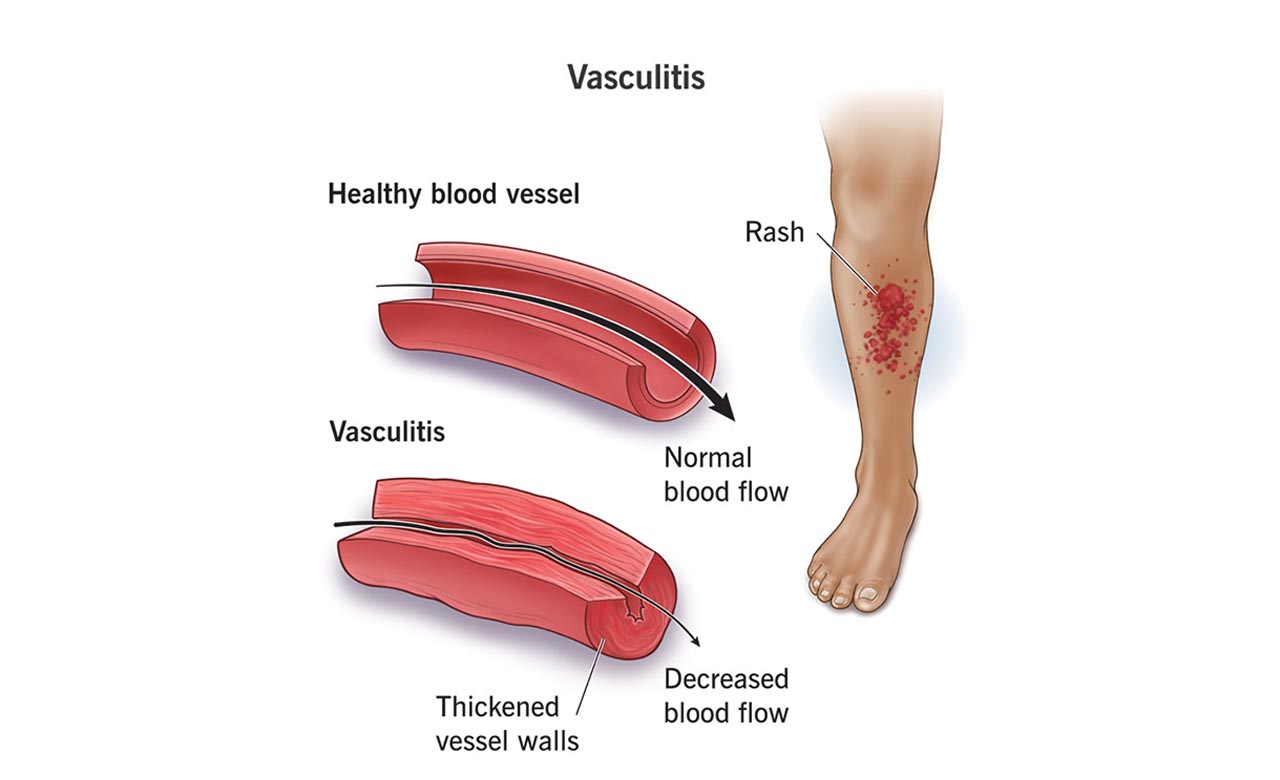Rheumatoid vasculitis is a disorder in which blood vessels are inflamed. It mainly targets those people living with rheumatoid arthritis for many years. Rheumatoid arthritis is an autoimmune disease; the immune system doesn’t work correctly. The immune system helps to fight diseases. The problem begins When the immune system can’t differentiate between good and bad cells. Mostly, men are affected by RV, but after the advance and better RA management, the RV ratio dramatically decreased.
Symptoms of Rheumatoid vasculitis
The symptoms depend on person to person and the location of the inflammation. The most common are rashes and skin ulcers. Regarding nerves, numbness and the sensation of pins and needles are shared. Some people experience muscle loss or weakness, too. Eye inflammation leads to excessive pain, irritation, and redness.
Diagnosis:
People with RA have the highest chance of developing RV. So, the doctors usually keep an eye on the symptoms. Any numbness, rash, or ulcers are alarming signs of RV In people with Rheumatoid arthritis. Some blood tests are also done to determine the inflammation and indicate the high levels of some antibodies. However, there are no specific blood tests for the diagnosis of RV. BIOPSY tests are done to know the tissue’s health.
Treatment For Rheumatoid vasculitis:
As there is no specific treatment or long-term cure for RV. However, minor lifestyle changes and medications could control symptoms and damage to blood vessels. Suppose the symptoms get more severe and RV starts attacking more than one part of the body. In that case, doctors have to change the strategy and may use different pairs or combinations of medicines to control the damage caused by Rheumatoid vasculitis. The following are the most common combinations of drugs in this regard;
- Steroids (usually high dose)
- Immunosuppressants (to slow down the overactive immune system)
- Chemotherapy drugs such as “methotrexate”
- Rituximab injections
Some people with RV have to take medication for a short period (only when the flare comes). Still, some people with more complicated conditions and symptoms have to take medicines for a long duration to live an everyday life with RV.
Complications
Heart attack, Stroke, Kidney failure, Restriction of blood supply to the bowels, and Atherosclerosis are the most uncommon and life-threatening complications that could occur if RV is left untreated or attacks the major organs.
Side effects
Low ability to fight infection and bone loss (osteoporosis) are some of the significant side effects caused by the medications used to treat RV.
Living with Rheumatoid vasculitis
It’s not easy to live with chronic illnesses such as RV because high doses of medicine also affect mentally and emotionally. It could be difficult to function normally as these medicines and treatments could cause excessive fatigue, mood swings, infections, etc., directly or indirectly affecting our daily routines, work life, and relationships. Support groups could be beneficial, and proper support from family and friends helps to live with this chronic disease and can make life easy for those who are suffering.




